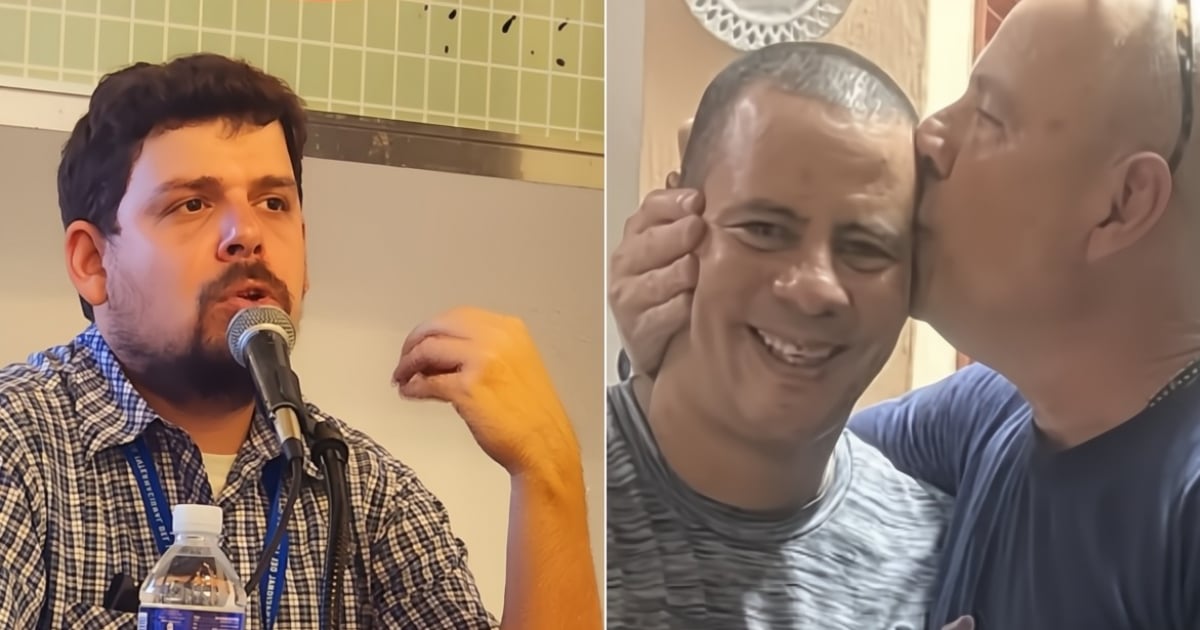The recent clash between musician Israel Rojas, leader of the duo Buena Fe, and pro-government journalist Michel E. Torres Corona has ignited social media, following statements by activist Carlos Lazo. Lazo accused the Cuban government of obstructing the direct delivery of medical supplies donations to hospitals on the island.
The controversy began when Lazo, who heads the "Puentes de Amor" project, claimed on his social media that Cuban authorities were preventing his organization from directly delivering powdered milk and other supplies to pediatric hospitals, a practice they have maintained for years.
The post sparked immediate reactions. The state-run portal Cubadebate published an article titled "Cuba has never denied access to solidarity groups to health institutions," refuting Lazo's claims. This piece was shared by Torres and met with a strong response from Rojas, who is known for his government-friendly stance. The Buena Fe frontman startled officialdom with his comment: "Cubadebate is lying. This time they are lying, and I regret it," he stated.
Torres, a socialist figure and communicator linked to state media, was displeased with the singer's response. "That is a very serious accusation. If it's true, I hope evidence is provided so the truth comes to light. The digital catharsis has only caused discontent. It has harmed the country we are trying to save. Above all and everyone, Cuba should come first, as José Martí said," Torres remarked.
Rojas, unwavering, persisted: "Before reaching this point, every effort was made to alert, but lately, trying to prevent issues seems to be a 'fool's exercise.' Believe me, I don't get involved in these matters to gain anything. Cuba loses. Cuba and its best people lose."
Torres attempted to have the final say, and Rojas allowed it. "I trust your goodwill. However, I still find the public handling of this matter inappropriate," expressed the host of Con Filo.
This public confrontation highlights the growing tensions among figures traditionally aligned with the official discourse, who are now voicing their disagreements with certain government decisions. The shift in Carlos Lazo's stance, from a government ally to a critic of its internal hurdles, seems to have sparked a broader debate on humanitarian aid management and transparency in Cuba.
Government's Response to Lazo's Allegation
On Saturday, Israel Rojas publicly supported Carlos Lazo, stating that the treatment towards "Puentes de Amor" activists had shifted "from admiration to evasion," reaffirming that the difficulties reported by the Cuban-American were real and profoundly unjust.
On the same day, the Cuban government responded to the accusations through an official statement from the Ministry of Public Health, denying the restrictions and asserting that donations reach their intended destinations. They further claimed that Lazo had misrepresented the truth and that the existing regulations are aimed only at organizing the reception and distribution of humanitarian aid. They clarified that direct deliveries require prior coordination to prevent disruptions in the medical centers' operational processes.
Meanwhile, former spy Fernando González Llort, president of the Cuban Institute of Friendship with the Peoples (ICAP), stated that "Puentes de Amor" receives photographic evidence of their donation deliveries and that the regulations in the country do not intend to hinder but rather organize the distribution process of these resources.
Frequently Asked Questions on Humanitarian Aid in Cuba
What is the "Puentes de Amor" project?
"Puentes de Amor" is a project led by Carlos Lazo, focused on delivering humanitarian aid, such as medical supplies and powdered milk, to pediatric hospitals in Cuba.
What was the Cuban government's response to the allegations?
The Cuban government denied the accusations, stating that existing regulations are designed to organize, not block, the distribution of humanitarian aid, and affirmed that donations do reach their destinations.
How did Israel Rojas react to the Cubadebate article?
Israel Rojas criticized the Cubadebate article, stating that it was lying about the situation, and expressed his regret over the misinformation.
